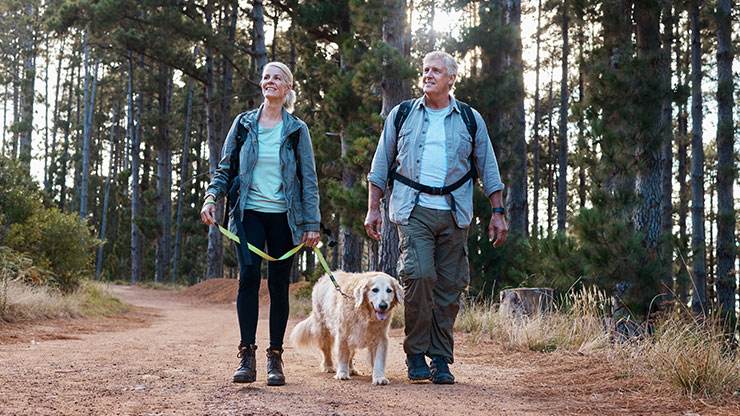
How to Choose the Right Dog for Your Lifestyle
Nothing feels better than the excitement of bringing home a new furry family member. But to make that pure joy last, we must be realistic about our routine and ensure that our home can fulfill the dog’s needs. This article discusses choosing the right dog for your lifestyle to ensure a happy and healthy relationship between you and your pet. Here are some tips to help you make the right choice:
Assess Your Lifestyle
You must first assess your day-to-day life to choose a dog that will fit your lifestyle. Ask yourself the following questions:
- Consider your daily routine: Are you active and outdoorsy or more passive?
- Consider your living situation: Do you have a large yard, live in an apartment, or share your space with children or other pets?
- Evaluate your work hours: How much time can you realistically dedicate to your dog daily?
- Think about your activity level: Are you looking for a dog to accompany you on hikes and runs, or do you prefer a more laid-back companion?
- Calculate your budget: Evaluate the financial commitment of owning a dog, including food, grooming, veterinary care, and other expenses.
Understanding these aspects can help you figure out what type of dog would thrive in your home and make an excellent addition to your family:
For an active routine, you might want a buddy who can keep you company on hikes and long walks. Opt for high-energy breeds such as a Labrador Retriever. Ensure that the dog's energy level matches your own. A calmer breed could be a better choice if you have a more relaxed lifestyle.
For a family with kids (or plans for one), you might want a dog that is outgoing enough to keep up with the kid’s energy but at the same time can be gentle with them. But regardless of the breed or dog’s personality, it’s crucial to never let kids interact with dogs unsupervised.
For couples or a single person who works long hours, consider adopting an adult dog with a calm personality since they are less demanding. However, it is essential to remember that dogs are social creatures, and long hours alone can harm a dog's mental health. Investing in a pet sitter or a dog walker can help your friend handle your absence.
For a senior couple or citizen, a puppy or a young adult might not be the best match. Look for an older dog with a calm personality. If a dog is already potty trained, that would be even better. Check with your local shelter. Many have a Seniors for Seniors adoption program, where the costs are reduced for a senior citizen to adopt a senior pup.
For someone with allergies, consider breeds with minimal shedding. Providing your dog with quality nutrition can also reduce excess shedding.

Be Aware of Your Dog’s Needs
Dogs can live 10 to 15 years or more, so it’s a long-term commitment. They will be a big part of your life, but for them, you’ll be there throughout their entire lives. So make sure you’re ready to be a responsible tutor for your pup by being aware of their needs and how to meet them:
Research Breeds
Learn about your intended breed and its characteristics. Consider the size, energy level, grooming needs, breed-specific health conditions, and temperament to find the best dog breed for you.
Consider the Dog’s Age
Puppies require much time and attention, while adult or senior dogs may be more low-maintenance. On the other hand, senior dogs may be less energetic but require more financial resources because of the health conditions that naturally come with age.
Training and Socializing
Assess your willingness and ability to train and socialize your pup. When adopting a new dog, you will have to dedicate your time and attention daily to teach them good manners—just like you wouldn’t want your neighbor’s dog pooping in your yard, you’ll have to teach your own dog where they should do their business and how to behave. All dogs require proper training and socialization. If you don’t feel confident with this task, hire a qualified professional to help you with that.
Visit Shelters and Breeders
Before you decide, take your time getting to know shelters and breeders. Spend time with the dogs you are considering to see if there is a connection and if their personality aligns with your lifestyle. Consider the following tips:
- Choose a reputable breeder that prioritizes the health and well-being of their dogs.
- Visit local animal shelters and rescue organizations to meet dogs needing a home. Many shelters allow visitors to play and spend time with their pups.
- Be open to different breeds and individual dogs. As with everything in life, plans can take an unexpected route: Sometimes, the right dog may not be the one you initially had in mind.

Be Patient
Changes are scary for humans and for dogs as well. So remember that your furry pal might need some time to adapt to their new environment. Potty accidents can happen, and your dog may act timid before showing their full personality.
Remember to meet your dog patiently and don’t force interactions if they show signs of stress. Respect your new friend’s boundaries; with time (and lots of treats), you will bond with your dog.
Final Thoughts
You can always consult with veterinarians, trainers, and online resources for valuable advice when choosing a new pup for you and your family. Remember that every dog is unique, and individual temperament can vary even within a breed. Choose a dog that can thrive with your lifestyle and will bring joy and fulfillment to you and your loving four-legged friend.
-----
Author Bio
A psychologist by training, Teresa is a creative writer with a background in scientific research. With a passion for art and a deep connection with nature, she enjoys leisurely visits to the park and listening to music while admiring the beauty of local flowers and the native landscape.










